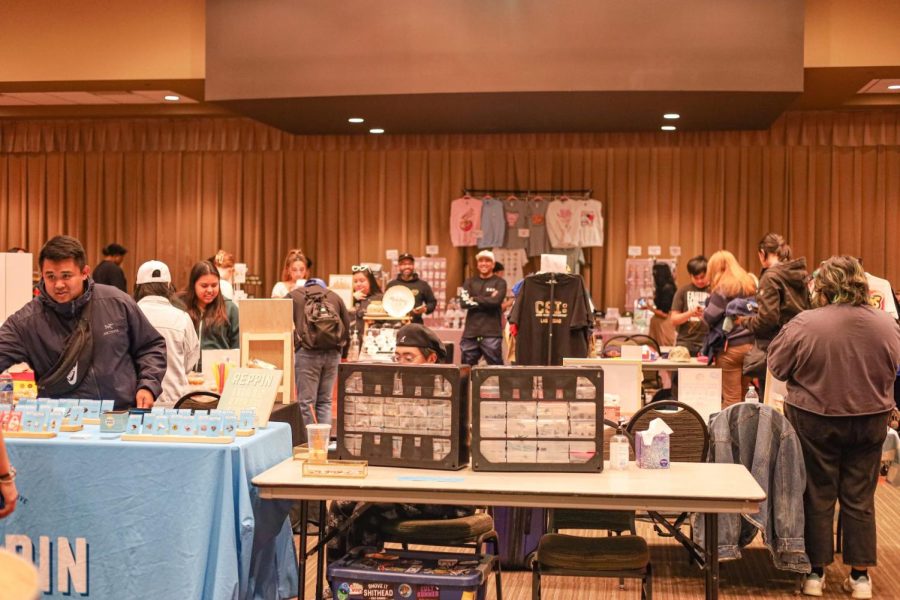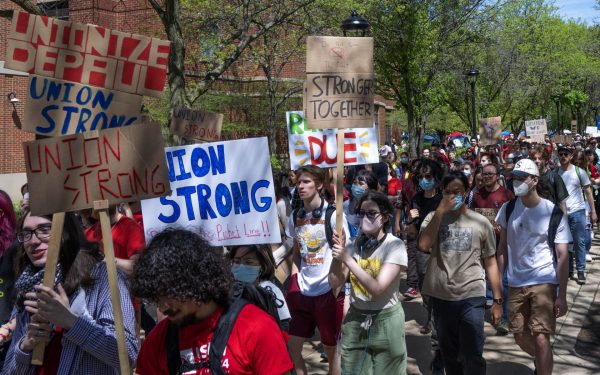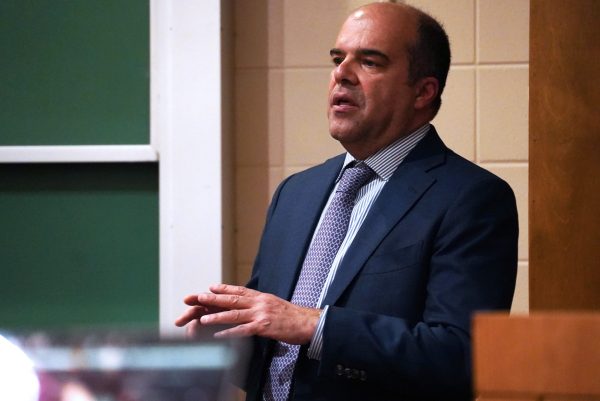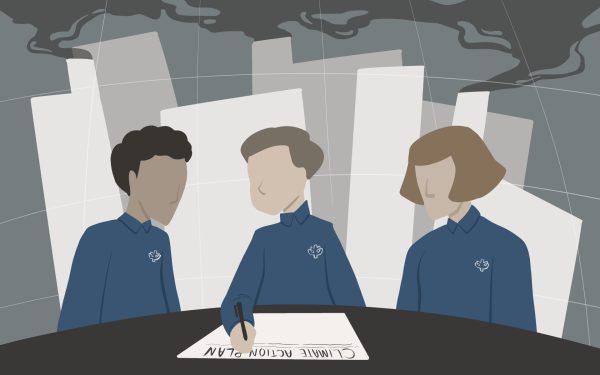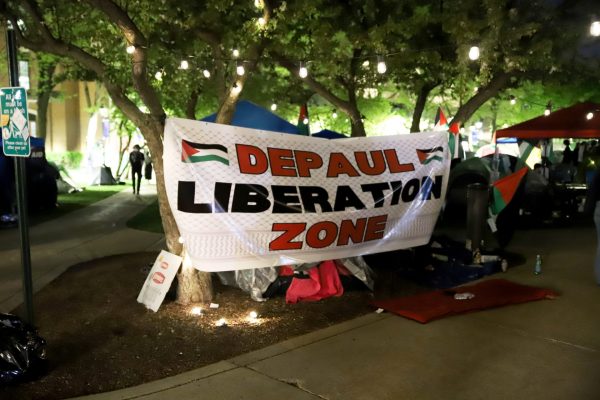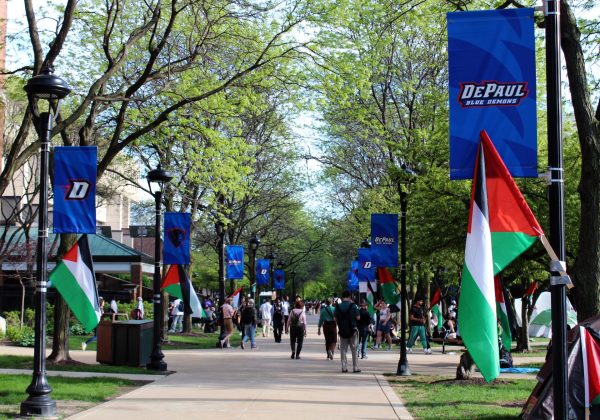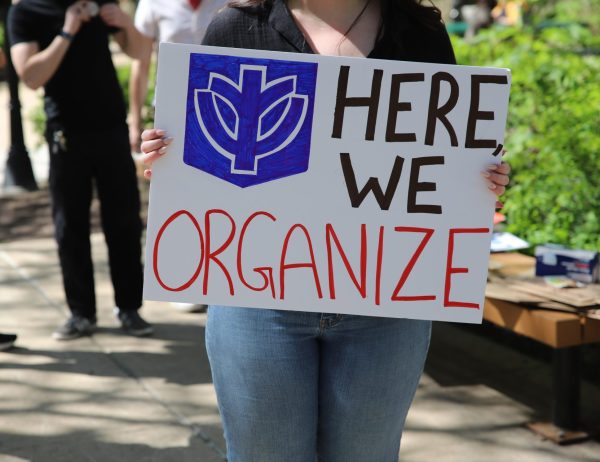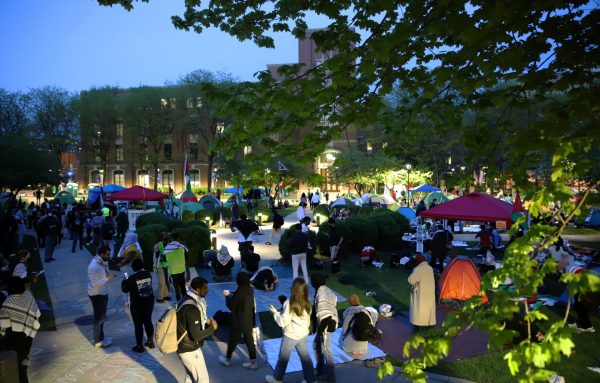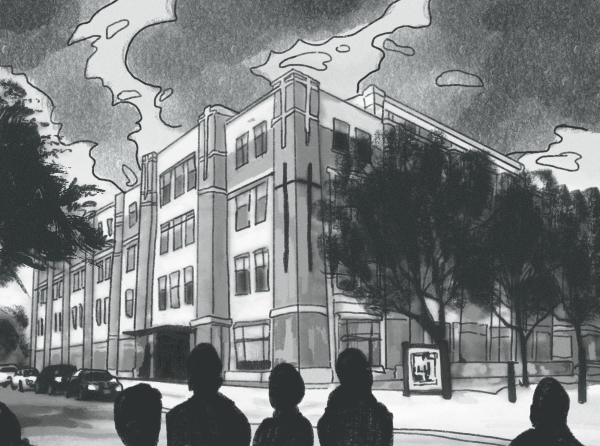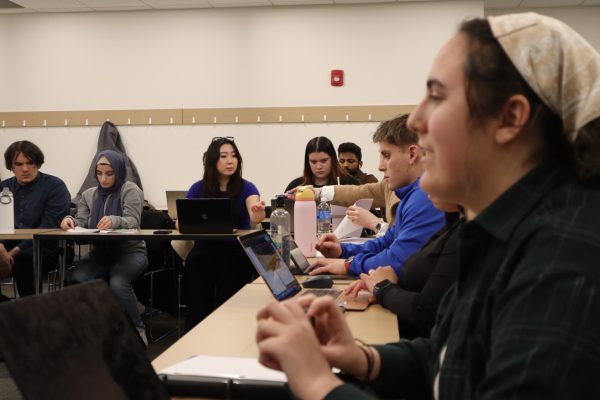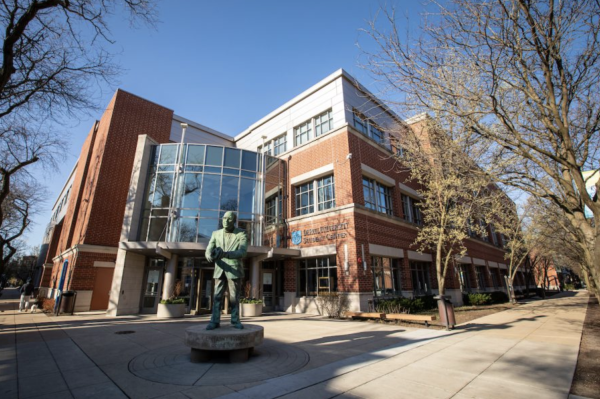KALAHI Kareer Night empowers asian-identifying businesses, students
There were a variety of items for sale at the event, from mochi donuts to homemade jewelry. Many of the vendors were there to promote APIDA culture and teach others about its importance.
KALAHI, DePaul’s Filipino student organization, hosted KALAHI Kareer Night on Friday, April 28 from 11 a.m. to 4 p.m. in Lincoln Park Student Center.
Vendors piled into the back of the room, their items touching nearly every wall in the back half of Room 120AB. At the front was a business panel, informing students about what they should know before stepping into their professional journey.
The event, according to Vincent Alunan, vice president of KALAHI, served as an inclusive space on-campus where students had the opportunity to make connections with Asian Pacific Islander Desi American (APIDA) individuals and businesses through industry discussion panels and interactions at an active vendor market.
Vendors were both local businesses and DePaul student businesses.
Emily Hurtarte, president of KALAHI and senior said since 2019 — when the organization was founded — many of the panels had to be done online due to the pandemic. This event was the first time the organization hosted an in-person business panel.
Alunan said the biggest challenge was making sure to plan for the right number of attendees.
“As KALAHI Kareer Night was the first time the organization was hosting this business panel along with a vendor market in person, a challenge was not having historical data regarding student turnout for the event,” Alunan said. “We had to always be active in marketing the event within the month of April. It paid off as we were able to have a great turnout that day.”
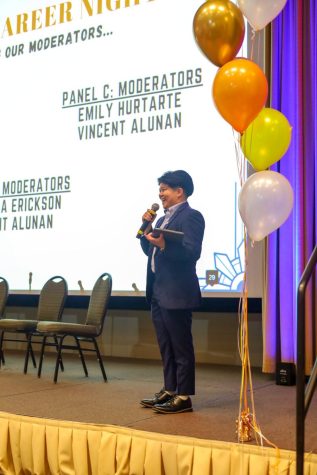
According to Hurtarte, KALAHI always looks to connect with “anyone and everyone,” and said the event was held to dive into their theme of community and culture.
“Our founders envisioned a space that can not only share our culture but connect our culture to other cultures,” Hurtarte said. “I hope moving forward the next [executive] board will want to continue to serve, educate, learn and grow with all identities and communities and continue to pursue an inclusive environment.”
Annabelle Mique, KALAHI’s social chair and junior, said the event empowered people in the APIDA community by giving them a group they can go to when they are looking for ways to express their identity.
“We’re all searching for identity,” Mique said. “Sometimes the challenge with holding events like this, where we are purposely showcasing APIDA identity and showcasing those voices, people feel intimidated because they don’t feel welcome here.”
Mique said this event was an opportunity to teach people about APIDA culture. One of the vendors, Noelle Fajardosaid, said she wants to show people Filipino culture by selling “Filipino tastes” at her small business, Masiramon Chicago, which sells Filipino treats.
Fajardo said it is important to show off Filipino flavors like Ube — a sweet purple yam — because oftentimes, Filipino flavors are used as trends for many large businesses or influencers.
“Right now, Ube is a trend, but it is not a trend,” Fajardo said. “It is our culture. We grew up on it. It’s not something that is just going to come and go. This is something that is and will forever be in our culture and forever be something that we will use.”
Fajardo said events like KALAHI Kareer Night are great opportunities for people to learn more about different cultures and to try new things that may seem scary.
Mique said she is looking forward to future KALAHI Kareer Nights because of how the event welcomed people into a large APIDA space and closed the intimidation gap.
“We’re all trying to find out our careers, we’re trying to find out who we are as people,” Mique said. “I feel like there are universal themes and universal experiences that we can all relate to. When you come in here, my hope is that you can see where we’re similar, not where we’re different.”
KALAHI meets bi-monthly on Mondays. Meetings are open to anyone. Students who are interested in joining can email [email protected] for more information.


